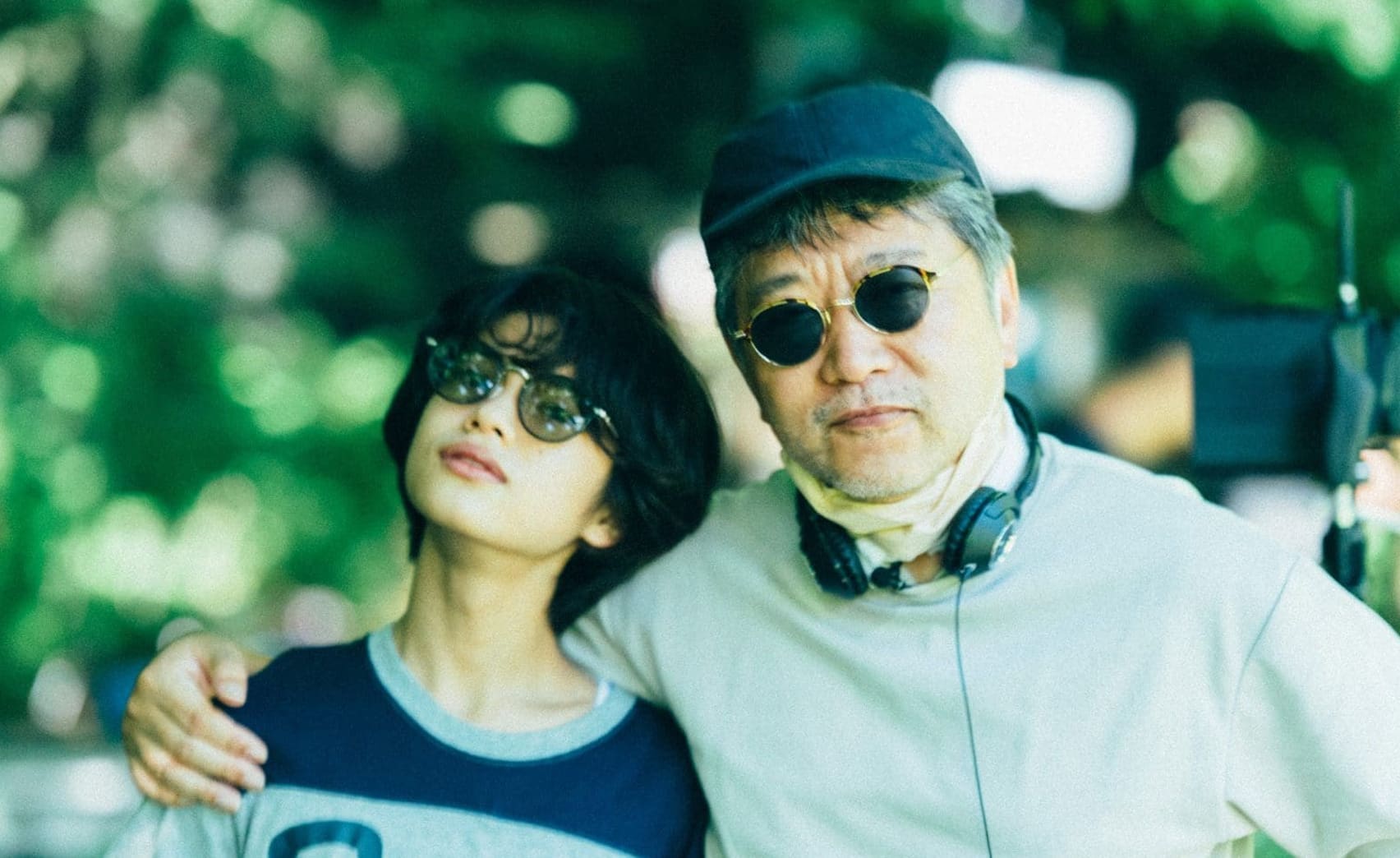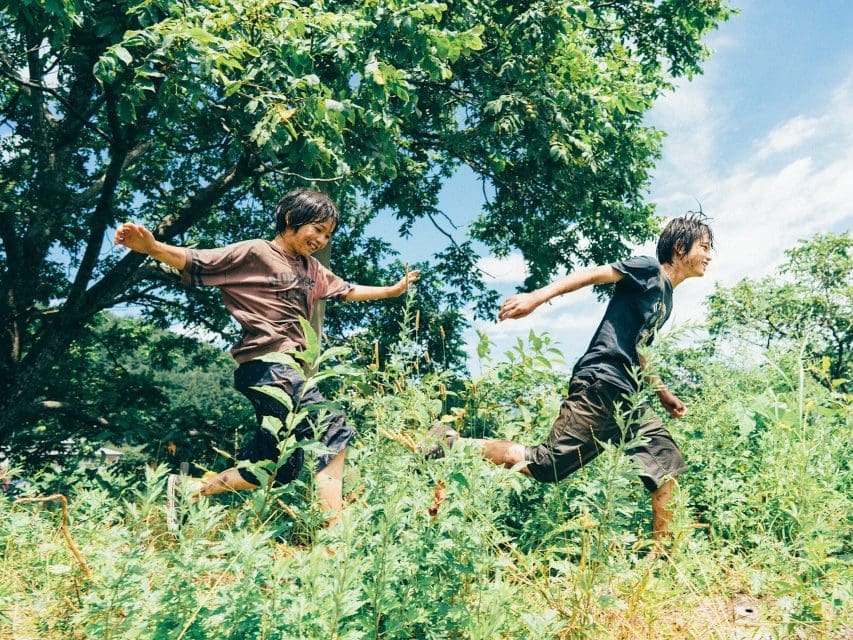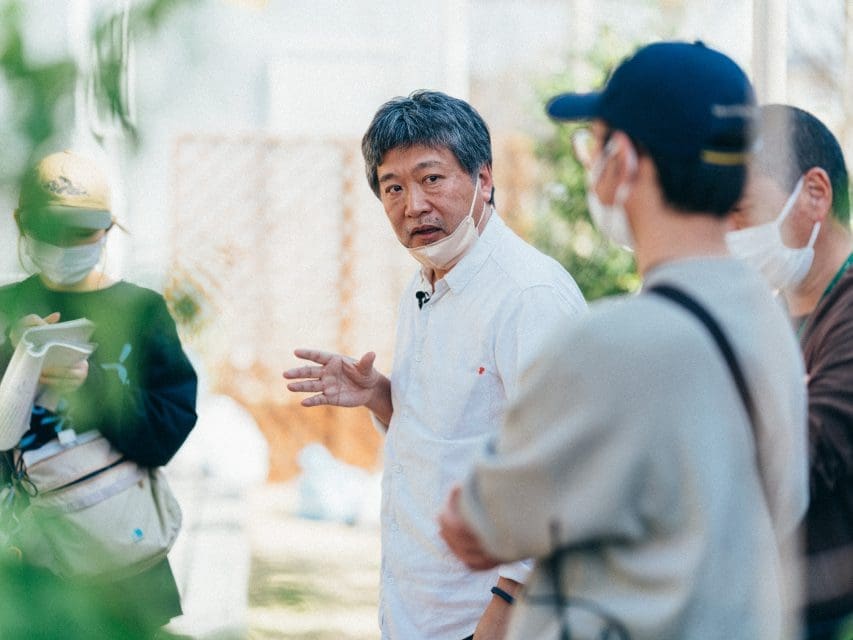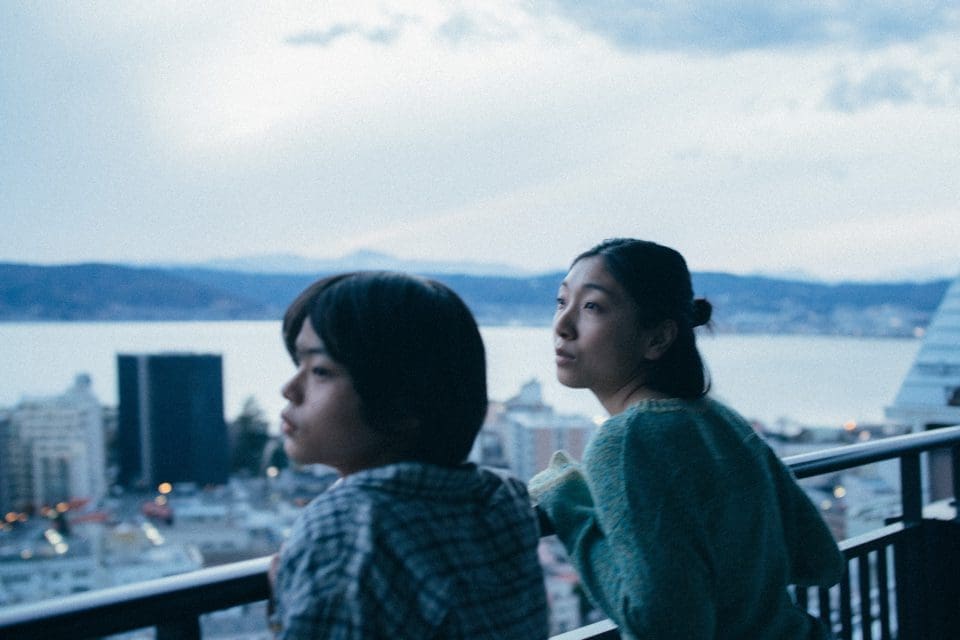
There are points while talking to acclaimed Japanese filmmaker Hirokazu Koreeda where neither of us are saying anything at all; extended periods of silence where he would close his eyes and enter a state of deep thought. His answers are short and curt, but it’s these moments of quiet that tell you the most about the man.. I saw in them the same patience and consideration that made me fall in love with Nobody Knows, a film I first watched on a beat-up laptop during a cramped eighteen hour bus ride through Myanmar. It wasn’t the most ideal setting to see a movie by one of cinema’s great contemporary auteurs, but his trademark humanism was just as illuminating then as it is now.
Koreeda’s movies stir the soul, not with grand gestures or melodrama, but instead by tuning us into the spaces between life’s dramatic moments and the most minute of human actions, which he likens below to an act of recovering lost memories. (There’s a wonderful video essay by After Yang and Columbus director Kogonada that expertly explores this sensibility—you can watch it here).
His latest film, Monster, is true to form. Adapted from a screenplay by Sakamoto Yuji, the film is Rashomon-esque in structure, following multiple viewpoints surrounding an incident in which a mother accuses a schoolteacher of hitting her son. Yuji and Koreeda unravel the mystery of their characters like pulling loose threads out of an old sweater, taking great satisfaction in eeking out dribs and drabs of truth amongst a whirlpool of misconception. I tell Koreeda that I’ve always been struck by his ability to see inside the soul of his characters, especially when they’re at their most reprehensible, and as you wade through murky waters towards Monster’s revelatory truth, his bittersweet sense of compassion begins to shine through.
The heart of Monster, though, lies with its two young protagonists, portrayed by Hinata Hiragi and Sōya Kurogawa, who bring an astonishingly complex tenderness to their characters—the kind that only Koreeda can bring out of his child actors. The film’s subtle exploration of the relationship between the two schoolboys won the director the Queer Palm at Cannes, and an impassioned co-sign by jury-head John Cameron Mitchell. It’s beautifully realised finale, alongside a devastatingly profound score by the late Ryuichi Sakamoto, who mustered up two new tracks for the film before his death last year, makes Monster essential viewing, and cements itself as both an outlier of Koreeda’s filmography and a film that fits comfortably inside his cinematic legacy.
Here, Hirokazu Koreeda touches on the central theme in Monster, his obsession with life’s tiny details, and why only Ryuichi Sakamoto could have written the film’s score.
Luke Georgiades: Monster is a mystery film in so many ways. Yuji Sakamoto plants clues in the narrative as if it’s a detective novel, although the movie’s final revelation is actually very intimate in scale, and the nature of it is very innocent. Was there a beauty for you in approaching the movie that way?
Hirokazu Koreeda: What we don’t understand, we make into monsters. This huge enemy lurking in the dark. But the monster isn’t there. It doesn’t exist. When you realise that, your relationship with people can change. In this case, the boys are coming to terms with the monsters that they believe are rotting inside themselves. It happens through this chain of small interactions. In that scene in the music room, the way the instruments cry out—barely music, more just sound—is one detail that’s an example of how a tiny everyday occurrence can tell a story. That’s a wonderful thing about the script that Yuji Sakamoto has written. I’m not sure if I’ve entirely answered your question very well [laughs]. It’s a hard feeling to express through words.

LG: One of my favourite scenes in your filmography is in After Life, when a teenage girl describes the feeling, in great detail, of resting her head on her mother’s lap. What has always fascinated you about those small details and where did that fascination begin for you?
HK: That was the actress’s real memory when I was interviewing her. It came from her. Memories are easily lost. I’ve noticed that the smaller, more unimportant-seeming the memory, the bigger the risk that it’s going to be buried if we don’t actively make a move to preserve it. That’s one approach to filmmaking, it’s about what you choose to focus the lens on. I like the kind of films that focus on the accumulation of small details.
LG: You won the Queer Palm at Cannes. Was there much conversation between you, Sakamoto and your young actors about the suggestion of queer love that we see in the movie?
HK: When I was first approached with the story, I realised there was a certain level of that element there, but I realised that if I was going to make this movie, I’d have to do some learning myself. We met with a group that supports LGBTQ [sic] children. They came in and advised on the script, and they gave talks to the young actors on set. I wanted the children and the whole crew to learn about this subject—the significance and the risks.
LG: I’m curious whether during those moments of teaching, the kids were receptive, in a different way to the adults, to the idea of queerness.
HK: Same sex marriage is still illegal in Japan, so in that sense we are behind countries in the West. But I think children nowadays are less likely to make fun of people for their sexuality, or to look down on them. At least on the surface.

LG: What special quality did Ryuichi Sakamoto bring to the film that was so deeply tied to what you wanted to bring to the screen?
HK: When I was looking down on that lake at night, Ryuichi Sakamoto’s was the only music that I could hear. When I was in my hotel room, editing, still, his was the only music that I could hear. I did get to the point that I thought, if he turns me down, I would rather have no music than have another composer’s music. I would have just relied on the sounds of the fire, the wind, the water, and the animal-like cries of the instruments in the music room.
LG: Do you feel like there’s a through-line that connects your work?
HK: [A long pause] I’d be very interested to know what you think.
LG: The first film of yours I saw was Nobody Knows, and the first moment that stood out to me during that viewing was when the mother, who goes on to abandon her children, wakes up in the morning with a tear rolling down her face. You see the souls of your characters, even as they act on their most selfish impulses.
HK: It’s easy to paint people as evil. And the audience wants that, because it means that they have a source where they can place blame for the injustices in the world. And then they can dust their hands off, because then it’s got nothing to do with them. I don’t want the audience to be able to shrug off responsibility so easily, and a version of that idea has crossed over into much of my work. When I read up about the case [of children being abandoned by their mother] that Nobody Knows was inspired by, the media wrote about a devil-mother. She was demonised. But if you think about it, the son at the end of the film is still trying terribly hard to keep his promises to her, by protecting his brothers and sisters. He hasn’t lost faith in her. Why is that? There’s got to be something more to her, to the relationship between her, for him to still believe in her. I wanted to make sure that the time I showed them spending together was not the same portrait you were getting from the news.

LG: Between films, what’s a source of inspiration for you?
HK: Meeting people. Talking to people. Watching the news on TV. I tend to get most of my ideas while moving from one place to another, on the train, or a plane. When I get on a mode of transportation, I think “I hope I get some good ideas this time.” There are five or six films I’ve been hoping to make for a long time. I’m just deciding which one to start with next year.
LG: Is there a movie you feel the most proud of making?
HK: All of my films are very different. Some of them are well made, some of them aren’t [laughs]. Some of them are very much like me, some of them I think “are you really my child?”. The film Still Walking didn’t have a big overseas release. It didn’t get selected for any of the big three film festivals. And for that reason—the word may not be ‘pride’—but I do feel deeply for it.
MONSTER is out in UK and Irish cinemas on March 15th. You can read our review of the film here.



